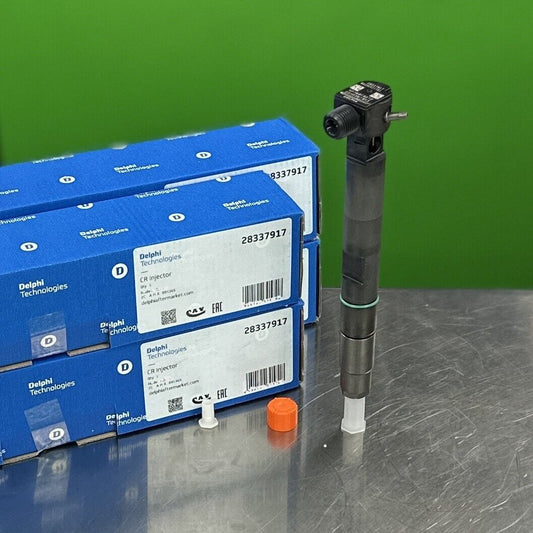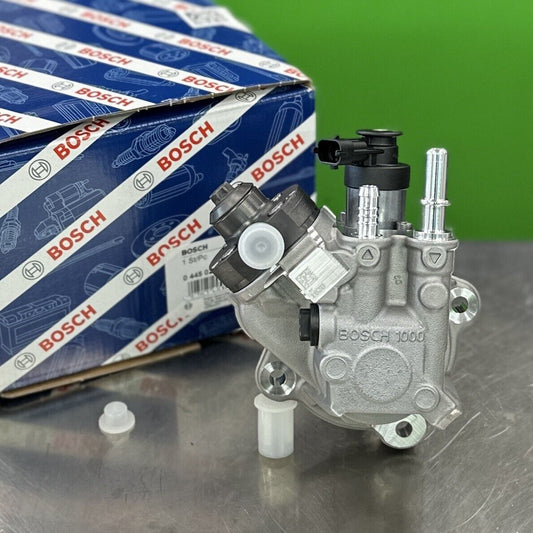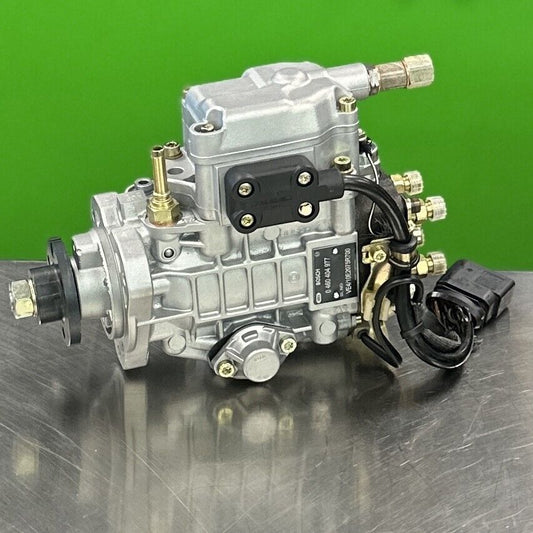Fuel Injector Repair vs. Replacement: Pros and Cons
When it comes to deciding between repairing or replacing fuel injectors in a vehicle, there are various factors to consider to make an informed choice. Let's delve into the pros and cons of each option to understand the implications on cost, performance, longevity, and environmental sustainability.
Cost Comparison
When it comes to deciding between repairing or replacing fuel injectors in a vehicle, one of the most crucial factors to consider is the cost involved. Understanding the financial implications of each option can help car owners make an informed decision that aligns with their budget and long-term goals.
Repairing a fuel injector typically involves diagnosing the issue, replacing faulty parts, and cleaning the injector to restore its functionality. While the initial cost of repair may seem lower than a full replacement, it's essential to consider potential savings in the long run. In some cases, repairing a fuel injector can be a cost-effective solution, especially if the damage is minor and can be easily fixed.
On the other hand, replacing a fuel injector involves purchasing a brand-new component that may come with a higher price tag. However, a new injector can provide improved performance and reliability compared to a repaired one. Additionally, newer injectors may be more fuel-efficient, leading to potential savings on gas expenses over time.
Creating a cost comparison table listing the upfront costs, potential savings, and long-term expenses of repairing versus replacing fuel injectors can help car owners visualize the financial impact of each option. By weighing the initial investment against potential benefits and drawbacks, individuals can make a well-informed decision that suits their financial situation and vehicle needs.
Performance Impact
When it comes to the performance impact of repairing or replacing fuel injectors in a vehicle, the stakes are high. Picture this: your vehicle's engine is like a finely tuned orchestra, with each component playing a crucial role in harmony. The fuel injectors, in particular, are the virtuosos that determine how smoothly the engine performs. Now, let's dive into how the decision between repair and replacement can either elevate your vehicle's performance to new heights or leave it struggling to hit the right notes.
Repairing a fuel injector may seem like a cost-effective solution at first glance. However, it's essential to consider the potential consequences on performance. Imagine trying to run a marathon with a sprained ankle – that's how a repaired fuel injector struggling to deliver the right amount of fuel can impact your vehicle's performance. Inconsistent fuel delivery can lead to issues such as rough idling, decreased fuel efficiency, and sluggish acceleration, ultimately affecting your driving experience.
On the flip side, opting for a replacement fuel injector can be akin to giving your engine a performance boost. Think of it as upgrading from a standard guitar to a top-of-the-line electric guitar – the difference in power and precision is remarkable. A new fuel injector ensures optimal fuel delivery, promoting smoother engine operation, improved fuel efficiency, and enhanced overall performance. Your vehicle will thank you with responsive acceleration and a more enjoyable ride.
When weighing the performance impact of repairing versus replacing fuel injectors, it's crucial to consider not just the immediate results but also the long-term benefits. Sure, a repair may offer a quick fix, but will it stand the test of time? Like patching up a leaky boat with duct tape, a repaired fuel injector may hold temporarily but could spring new leaks down the road, leading to ongoing performance issues.
On the other hand, investing in a replacement fuel injector sets the stage for long-term success. It's like investing in high-quality strings for your guitar – the initial cost may be higher, but the performance gains and durability make it a worthwhile investment. By ensuring consistent fuel delivery and optimal engine performance, a new fuel injector can prolong the life of your vehicle, reduce maintenance needs, and keep you cruising smoothly for miles to come.
Longevity Considerations
When it comes to longevity considerations in the debate between fuel injector repair and replacement, there are several key factors to take into account. Let's delve into the durability and lifespan of both repaired and replaced fuel injectors, and how each option can influence the overall maintenance schedule and reliability of your vehicle.
Repairing a fuel injector may seem like a cost-effective solution in the short term, but it's essential to consider the longevity of this fix. While a repaired injector can function adequately for a certain period, it may not offer the same level of reliability and longevity as a brand-new replacement. Think of it as a temporary patch rather than a long-term solution.
On the other hand, replacing a faulty fuel injector with a new one ensures that you are starting fresh with a component that is designed to last. New injectors typically come with warranties and are built to withstand the rigors of daily use, providing peace of mind in terms of longevity and reliability. It's like getting a new pair of shoes that are guaranteed to go the distance.
Moreover, the longevity of fuel injectors can directly impact the maintenance schedule of your vehicle. A repaired injector may require more frequent check-ups and potential repairs, adding to the overall maintenance costs over time. In contrast, a replaced injector is likely to offer a more stable performance, reducing the need for constant monitoring and upkeep.
When considering longevity, it's crucial to weigh the long-term benefits of replacement against the short-term convenience of repair. While repairing a fuel injector may seem like a quick fix, opting for a replacement can provide greater longevity, reliability, and peace of mind in the long run. Think of it as investing in the future health and performance of your vehicle.
Environmental and Sustainability Factors
When it comes to deciding between repairing or replacing fuel injectors in a vehicle, it's crucial to consider the environmental and sustainability factors involved. This not only impacts the vehicle itself but also contributes to the larger ecosystem and environmental footprint of the automotive industry.
Repairing fuel injectors can be seen as a more sustainable option as it promotes the reuse of existing parts, reducing the need for new manufacturing and resource consumption. By repairing injectors, we can extend their lifespan and minimize waste generation, aligning with the principles of resource conservation and eco-friendly practices.
On the other hand, replacing fuel injectors may involve the production of new parts, which can lead to increased energy consumption and emissions during manufacturing. Additionally, the disposal of old injectors needs to be handled properly to prevent environmental harm, highlighting the importance of responsible waste management in the automotive sector.
Considering the environmental impact of both options, it's essential for vehicle owners and repair shops to weigh the benefits of repair versus replacement not only in terms of performance and cost but also in terms of sustainability. Making informed decisions about fuel injector maintenance can contribute to reducing the overall carbon footprint of the transportation industry.
```htmlFrequently Asked Questions
-
Q: Is repairing a fuel injector more cost-effective than replacing it?
A: The cost-effectiveness of repairing versus replacing a fuel injector depends on various factors such as the extent of damage, the quality of the repair, and the long-term performance. In some cases, repairing can be a more budget-friendly option, while in others, replacing may offer better value.
-
Q: How can I determine if my fuel injector needs repair or replacement?
A: Common signs of a faulty fuel injector include engine misfires, rough idling, decreased fuel efficiency, and unusual engine sounds. It is recommended to consult a professional mechanic for a thorough diagnosis to determine the best course of action.
-
Q: Will repairing a fuel injector affect my vehicle's performance?
A: The impact of repairing a fuel injector on performance can vary. A well-executed repair can restore optimal fuel delivery, leading to improved engine power, fuel efficiency, and overall performance. However, a poorly done repair may result in further issues.
-
Q: Are there any environmental benefits to repairing fuel injectors?
A: Repairing fuel injectors can contribute to environmental sustainability by reducing waste generation associated with replacing parts. By extending the lifespan of components through repairs, fewer resources are consumed, promoting eco-friendly practices in the automotive industry.
-
Q: How long does a repaired fuel injector typically last compared to a new one?
A: The longevity of a repaired fuel injector depends on the quality of the repair, the driving conditions, and maintenance practices. While a new injector may offer a longer lifespan, a well-maintained and properly repaired injector can function effectively for a considerable period.



